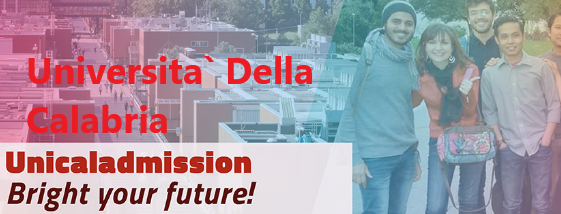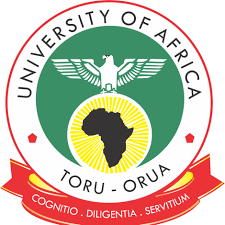The information contained in this article is for those who are interested in the application of MSc in Environmental and Territorial Safety Engineering on Sustainable Management of Natural Resources in University of Calabria (Italian: Università della Calabria, UNICAL) International Scholarship Awards for the 2022/2023 academic year.
The questions that you must have been asking about the programme have been carefully answered in this article so that you would know the costs and benefits of the programme.
The management of the University of Calabria (UNICAL) has published the basic requirements for all the prospective students of Masters Degree programme in Environmental and Territorial Safety Engineering on Sustainable Management of Natural Resources.
Read carefully if you are interested in the programme and share the information to other interested candidates
Overview of MSc in Environmental and Territorial Safety Engineering on Sustainable Management of Natural Resources
Duration: 2 years
Start date: October 1, 2022.
Total number of hours (number of ECTS credits): 3000 hours (120 ECTS credits)
Admission Requirements
Intending applicants of the MSc in Environmental and Territorial Safety Engineering on Sustainable Management of Natural Resources into UNICAL should possess any of the under listed qualifications.
- Master’s Degree in: Environmental Engineering, Civil Engineering, Earth Science, Environmental Science and/or equivalent.
- Bachelor’s Degree in: Environmental Engineering, Civil Engineering, Earth Science, Environmental Science and/or equivalent.
- Language skills in English: B1 and/or higher levels
Context of the Programme
Sustainability is one of the most challenging and rapidly growing areas in both the public and private sectors.
With the increasing awareness that our world is running beyond its possibility, the commitment to sustainable development to meet the needs of today’s generations without jeopardising those of the future has never been more evident.
The scope of the Master’s Degree in Environmental and Territorial Safety Engineering on Sustainable Management of Natural Resources is to meet this challenge.
This Master’s Degree offers a genuinely interdisciplinary approach to sustainable resource management.
It offers students the opportunity to acquire research skills, to develop theoretical understanding of key issues, and also important aspects of the practical and professional skills required by employers.
Learning Objectives and Outcomes
One of the special advantages of the Master’s Degree in Environmental and Territorial Safety Engineering on Sustainable Management of Natural Resources in University of Calabria (UNICAL) is that graduates shall be specially equipped for efficiency in problem solving across many disciplines.
The programme has been designed to train professionally complex figures who can operate in multiple occupational areas of sustainability.
The aim of the new Master’s Degree is to train master’s graduates who will be able to conceive, plan, design and manage works, systems, plants and services in the various areas of interest of the environmental engineering such as:
a. sustainable management of water resources, quality monitoring and pollution prevention of environmental matrices (air, water, soil), the treatment of solid, liquid and gaseous emissions and the remediation of polluted sites;
b. use and management of natural resources, raw materials, by- products and energy resources, with particular attention to those from renewable sources, and the treatment, collection and disposal of civil and industrial waste;
c. land management and management of the built environment, the improvement of the functional, energetic and environmental performance of structures and infrastructures, and the assessments of the environmental impact of civil and industrial activities;
d. an interdisciplinary vision, useful for understanding environmental contexts and to design a sustainable territorial project aimed at the prevention and mitigation of environmental risks and adaptation to them (re-naturalization of urban areas, green and blue infrastructures, Nature Based Solution).
The following are the specific skills that will be acquired at the end of the programme:
- a thorough knowledge of the theoretical-scientific aspects of engineering, mathematics and other basic sciences and the ability to use this knowledge to identify, formulate and solve extremely complex engineering problems for the environment and the territory, according to a systemic vision and an integrated and interdisciplinary approach;
- the principles and tools for the design of engineering works, systems, plants and services of interest in relation to the environment;
- ah-hoc awareness of the need for active protection of the natural environment, sustainable management of natural resources and reduction of the ecological footprint according to the principles of the circular economy;
- understanding of the complex interactions between anthropogenic activities and natural systems, recognizing the value of resources and ecosystem services, to ensure the protection of the environment through the minimization of elements of fragility and the optimization of resilience to climate changes, hydro-geological instability, seismic events and, more generally, extreme events;
- use of information and telecommunications technologies for the representation of the territory and for the acquisition, management and interpretation of data obtained from remote;
- use of information and telecommunications technologies for the representation of the territory and for the acquisition, management and interpretation of data obtained from remote sensing and distributed monitoring networks;
- design, implementation and use of physical, mathematical and numerical models for the simulation of environmental phenomena and processes, and critical interpretation of the results;
- awareness of safety and health protection issues in natural, anthropic, civil and industrial environments.
Main Topics
The Master’s Degree in Environmental and Territorial Safety Engineering on Sustainable Management of Natural Resources is an innovative programme and it is open to applicants from all disciplinary backgrounds;
it promotes leadership and adopts action-based and experiential learning, facilitated through an series of lectures, work placements initiatives and group projects.
The programme fosters critical thinking and promotes proactivity in problem- solving and decision-making in sustainable development.
Recommended Scholarship Awards
Chevening Scholarship UK 2022-2023 | Fully Funded
USTC Scholarship China 2022 | Fully Funded
York University Tentanda Via Awards for International Students in Canada
Federal Government Scholarship for Bilateral Education Agreement 2022/2023
University of Alberta International Scholarship Award
How to Secure Admission and Study Abroad
Employability and Careers
One of the vital questions that prospective students of Master’s Degree in Environmental and Territorial Safety Engineering on Sustainable Management of Natural Resources must have asked themselves is “After this programme, where am I going work?”
The truth is Master’s Degree in Environmental and Territorial Safety Engineering on Sustainable Management of Natural Resources in the University of Calabria (UNICAL) will expose the graduates to diverse ideas that would be highly demanding in different fields.
Graduates of Master’s Degree in Environmental and Territorial Safety Engineering on Sustainable Management of Natural Resources will be able to find employment opportunities in any of the following areas;
- the national and international work market in professional firms, consulting and design firms, construction companies;
- they could also work in the management and maintenance of civil works, infrastructures and plants, manufacturing or service companies, public and private entities, managers and concessionaires of works, networks and services, operating in various fields, such as:
- the planning, design, construction and management of works, systems, plants and services for the protection of water bodies, remediation of natural and anthropogenic systems, remediation of contaminated environmental matrices, primary treatment of waste water and gas emissions in the atmosphere, management of water resources, raw materials, by- products and energy resources, waste cycle management;
- the planning, design, construction and management of environmental monitoring systems, infrastructures, systems and service networks;
- the assessment of the environmental impacts and compatibility of civil and industrial works and structures, the strategic environmental assessment of territorial plans and programs, work and construction sites’ safety and the protection of workers’ health;
- the research, development and production of innovative technological solutions for the environment.
- Master’s graduates from this course will also be able to find employment:
- in universities and research institutions, in the field of higher education and research;
- in companies operating on the market through quantitative analyses of the value of the environment and its ecosystem services.
Keywords
Sustainability
Management of Natural Resources
Circular Economy
Environmental Impacts
Renewable Energies
Raw Materials
For more information on how to start the application, read about University Of Calabria (Italian: Università Della Calabria, UNICAL) International Scholarship Awards.


